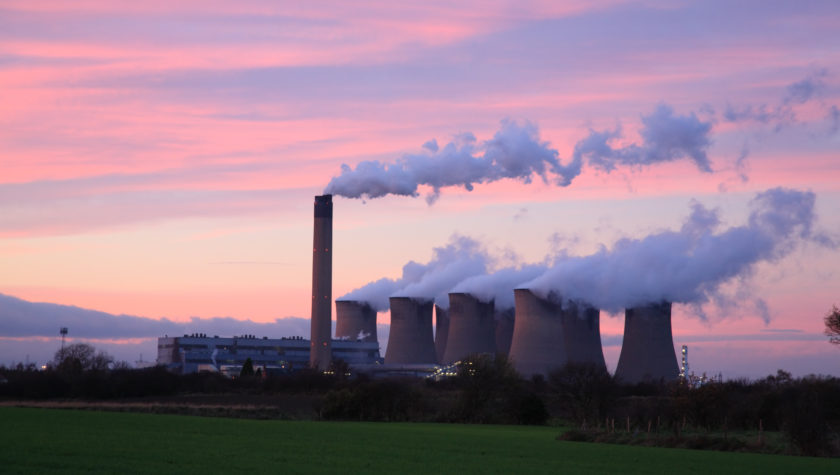The National Infrastructure Commission is inviting businesses, policy makers, scientists, academics, thinktanks and investors to share their views on the potential of emerging technologies designed to remove harmful greenhouse gas emissions directly from the atmosphere and store them.
The Commission has today launched a new call for evidence as part of its study examining how Greenhouse Gas Removal (GGR) technologies can help the UK achieve its ambition of net zero greenhouse gas emissions by 2050.
The study will focus on the two most developed technologies: Direct Air Carbon Capture and Storage (DACCCS) and Bioenergy with Carbon Capture and Storage (BCCS). Both make use of carbon capture and storage technology. Natural solutions such as the use of forests as ‘carbon sinks’ will play an important part in the UK’s climate change strategy and reducing emissions, but lie outside the scope of this study.
Chair of the National Infrastructure Commission Sir John Armitt said:
“Achieving net zero means looking beyond decarbonising how the UK generates its energy and considering all parts of the carbon cycle. By thinking creatively and boldly now about the role greenhouse gas removal technologies could play, we have the potential to transform our economy and give the UK a global competitive advantage.
“This study will consider what we need to do to ensure this potential technology can flourish. That means it’s essential we have the right policy and planning frameworks that will stimulate investment and ensure the best solutions are deployed at the right time to bolster broader efforts to tackle climate change.”
In the first stage of its study, the Commission is seeking evidence and ideas in response to twelve questions covering how the effectiveness of these new technologies should be evaluated, how the market can be supported and incentivised to invest in the most effective technology solutions, and what considerations need to be made to support the deployment of the technologies.
The call for evidence will help inform the evidence base, analysis and wider programme of stakeholder discussions to be undertaken by the Commission. The call for evidence closes on 3 March 2021. The Commission’s work will be informed by the Department for Business, Energy and Industrial Strategy’s own broader consultation into GGR technologies.
The Commission’s study will be informed by the terms of reference published by the government in November 2020 alongside its National Infrastructure Strategy.
The Commission expects to report on its completed study this summer.
Call for evidence opens on potential of greenhouse gas removal infrastructure to boost UK net zero strategy
The Commission is seeking evidence on Direct Air Carbon Capture and Storage and Bioenergy with Carbon Capture and Storage technologies.
Published: 20 Jan 2021
By: Rob Mallows
Tagged: Environment

Share this article
Related studies
Greenhouse gas removal technologiesRecent Articles

Coming up in 2024
This page shows a calendar reflecting the latest expected dates for Commission reports, publications and events. You can also sign up to receive our quarterly newsletter by entering your email address in the box at the foot of each website page.

We’re recruiting – Infrastructure Funding, Financing & Regulation Lead
We are recruiting for an exciting new role in the Commission’s economics and modelling team, helping shape our policy on the cross-cutting themes of economic regulation, funding and financing, across all the sectors within our remit. The successful candidate will be an infrastructure/capital financing expert, and/or a regulatory specialist. This is a new role in...

Winser: NAO call for robust plan to boost low carbon heating “absolutely right”
A National Audit Office report out today (18 March 2024) says heat pump installations are falling well below the level needed to meet the government’s targets of 600,000 units installed each year by 2028. The NAO says in response that a more robust plan from government and greater clarity on the future role if any...

Government response on surface water flooding risk “does not meet scale of challenge”
The government has today (13 March 2024) responded to the Commission’s study on reducing the risks of surface water flooding, published in November 2022. While it accepts the principles behind a number of the Commission’s recommendations, the government’s response – in the Commission’s view – makes few new commitments on steps to manage surface water...